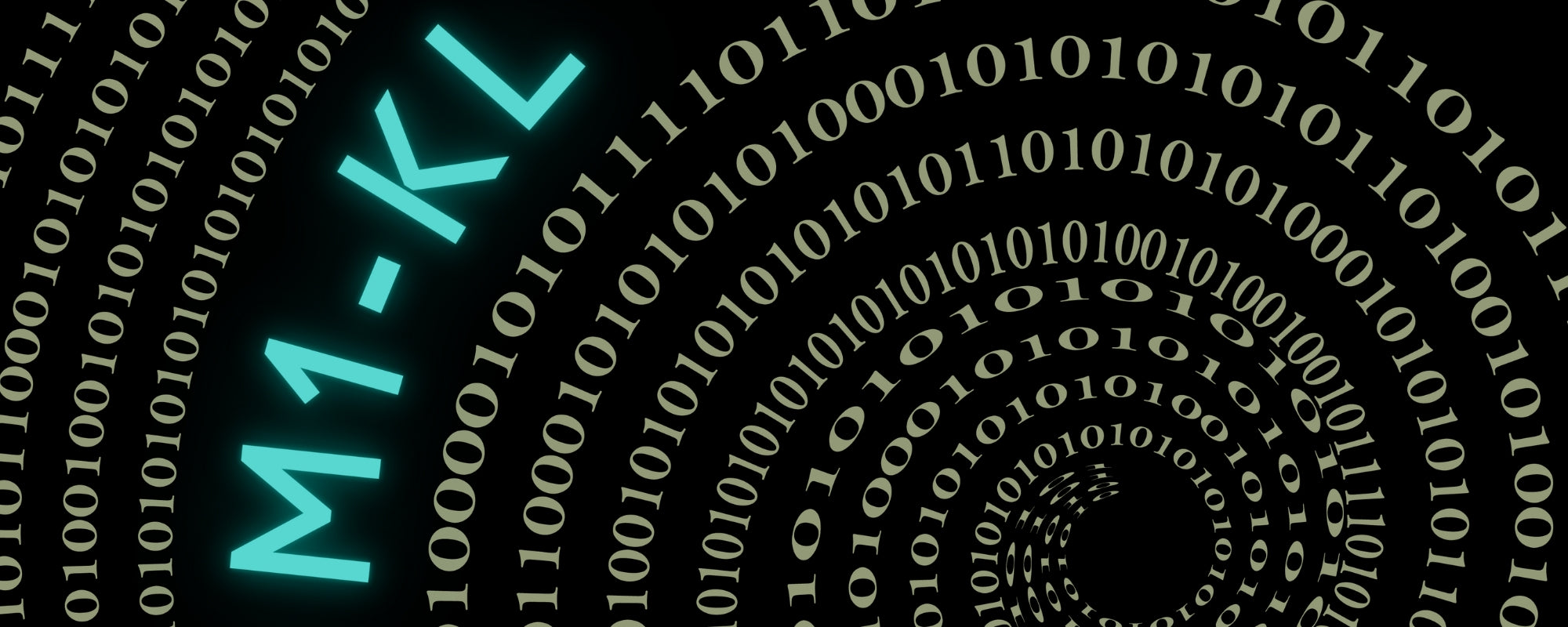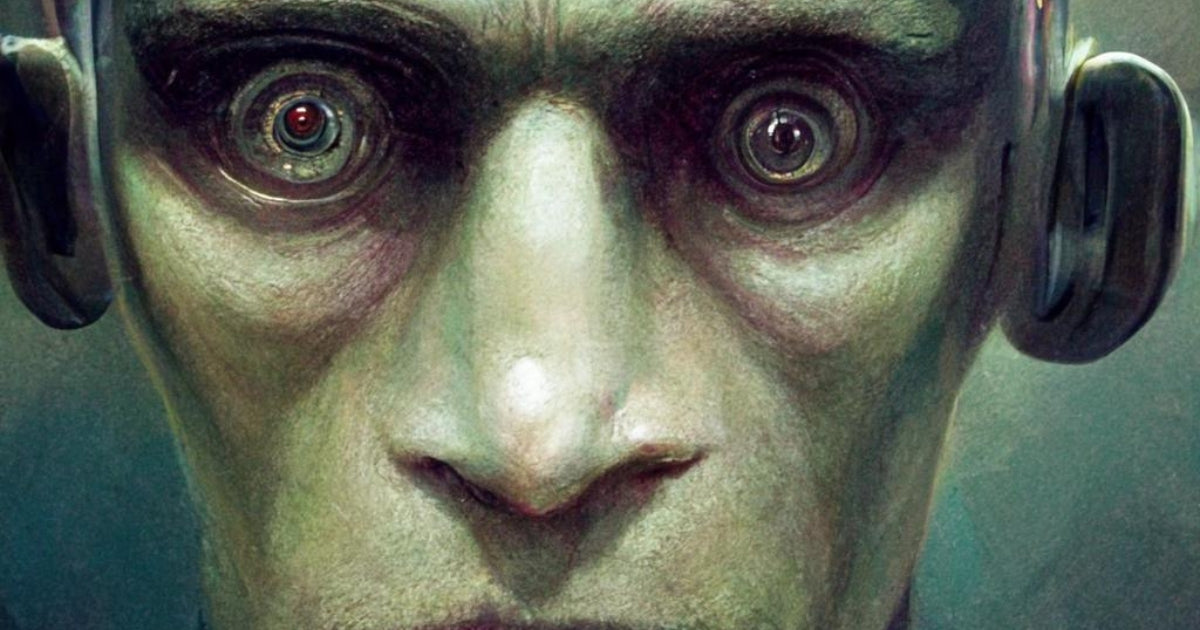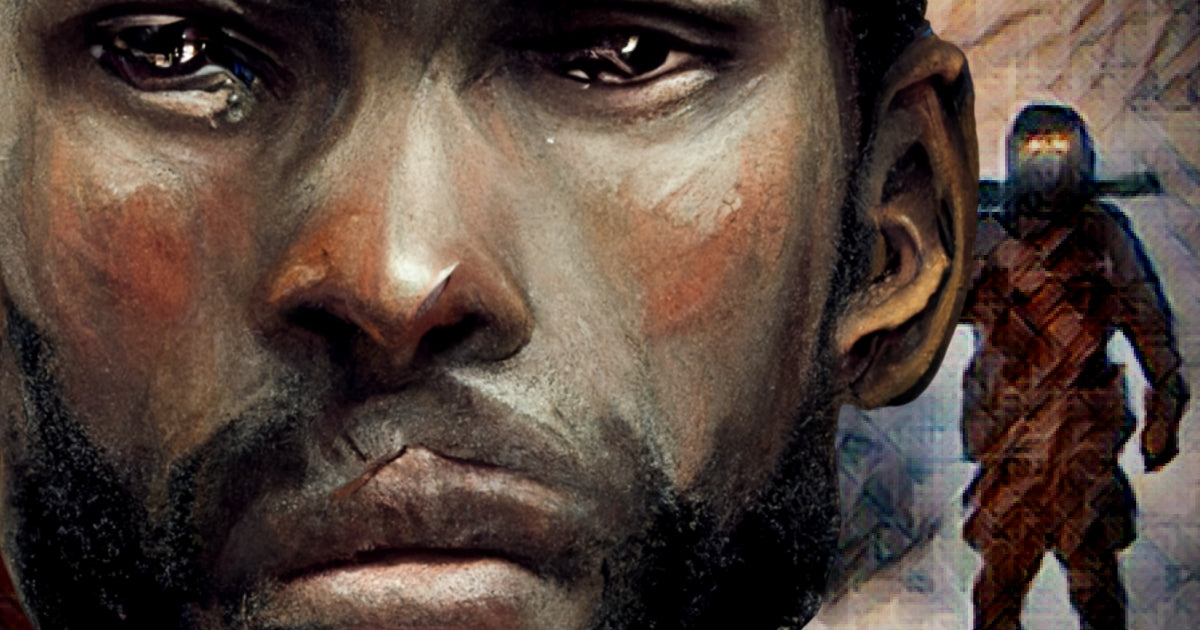

M1-kl
Light penetrates the thin membrane of skin that covers my eyes, rousing me from a deep state of unconsciousness. Where am I? A rhythmic pulse in my ears, approximately ninety beats per minute, which accelerates to around one-twenty by the time I’m conscious enough to pry my eyes open. Stark-white ceiling and fluorescent strip lights, one of which emits a constant buzz in tune to its flicker.
Heavy as lead, I try to raise myself into a sitting position but fail miserably. The tip of the index finger on my right hand is the only body part capable of movement. It utilizes its nerve-endings to identify what it touches and concludes it is ice-cold steel. I’m on some kind of bed, prone and inert, incapable of anything more than thought. Have I been in some kind of accident?
Some of the overhead light is swallowed as a shape looms over me, dressed head to toe in white and wearing a face-shield and a scrub-cap made of thin blue plastic. Their appearance suggests I’m in a medical facility, and yet despite making eye contact, the figure issues no reassurance or words of comfort to welcome me back to the land of the living. Perhaps they do not realize I’m awake, though surely they must be monitoring my stats. Their face gives nothing away. Blank as the ceiling, there is nothing behind the mask to suggest an acknowledgment of my wakeful state.
Hey, I’m breathing! I want to shout, but I’m unable to utter a word. Shine a light in my pupils. Press down hard on my nail bed. I’m alive! My pulse is around one-eighty, panic a leviathan in my lungs, and yet I cannot even blink. If only I could move my finger again, perhaps they’d notice. But the pathetic effort fails to raise the alarm.
Hands donned in latex gloves fiddle with something beneath my chin. A tracheotomy tube? Is that why I cannot speak? Never have I been so desperate to communicate, but before I have a chance to make another attempt, they disappear and I am left with nothing but despair and the buzz from the overhead light-strip.
Think, Mikael, think. Where were you prior to this and what were you doing?
The last thing I remember is checking the digi-planner for the week ahead and realizing it was full. Not a single vacancy in which to slot the newly referred client named Lawrence Sloane, Fluoxetine abuser and reluctant, recovering alcoholic. Despite the doctor’s report suggesting Lawrence was a potential suicide risk, my hands were tied. Poor guy would have to wait another ten days before I could fit him in for a virtual call. All I could do was hope he didn’t succumb to his morbid urge in the meantime.
So what the hell happened afterwards? Heart attack? Stroke? Surely not at my age.
Come to think of it, how old am I? I cannot recall the number. I try to focus on the past—my childhood, my parents. A partner? Nothing. No loving face floats in my vision; no memory of any significant event. Whatever had occurred has robbed me of my long-term memory, and yet I cannot say I’m upset. Frustrated, yes, but not sad.
What do I remember, apart from the Lawrence Sloane issue? How far back in time can I go? My attempts to extrapolate this information result in an internal vibration, like mild electric shock, reminding me of how my client, Rosa Hawkins, describes her Multiple Sclerosis. Small wonder the poor woman suffers from depression if this is how she feels most of the time. Did I offer her enough sympathy, though? Or did I fob her off with a few wise words and a nod of the head?
I must try harder. I’m certain it’s there, somewhere, like a bullet lodged in the brain—my earliest recollection lies hidden, cosseted by layers of neural tissue.
After some searching, I manage to locate it: The world had spiraled into a shithole, dragging thousands upon thousands of victims into the sewer with it. And the repercussions were immense. The powers that be had given up trying to follow the rules to sustain the number of psychotherapists required to cope with the huge demand on mental health resources. They fast-tracked hundreds if not thousands of us in an attempt to plug the gap, albeit a temporary solution. You know how it is with such people—they see no farther than the end of their nose. They look for a short-term solution and deal with the consequences later.
Instead of having to spend three to five years in training, they provided a crash-course in psychotherapy, which meant we were able to practice on the unwitting public in less than three months. I say unwitting, because it was top-secret. No one would be any the wiser, we were told, unless of course someone, somewhere, spilled the proverbial beans, but that was unlikely and besides, we were assured there’d be no repercussions on us should such a thing happen.
Don’t berate me over ethicality. It’s beyond my remit. I was recruited to do a job and that’s what I did.
A new sound from the far corner of the room interrupts my thinking. Someone is tapping away at a keyboard. Whoever it is pauses every few seconds to gather their thoughts. I try to move my head to see who is there but find it impossible. I cannot even blink, so how was I able to open my eyes earlier? Did I imagine having done so? Perhaps they were open all the time. If that’s the case, why are they not dry and sore? Panic erupts in my chest as the extent of my paralysis once again rears its ugly head.
The sense of electrical vibration increases, and I wonder if I am having a seizure. Or is there some kind of device attached to me causing the vibration? Thoughts lose clarity, zigzagging through my brain, then the brightly lit room dims and all I see is a string of numbers printed in black ink against a white background: 01000001 01101110 01101110 01100001
I try hard to remember. Who was my last client?
An image floats in my vision—an image of a young woman, barely old enough to be classed as an adult. Her name resides at the tip of my tongue. It tastes of honey and marzipan but refuses to make it as far as my semantic memory. The temporal lobe, however, seems to be in perfect working order because now the vibration has eased, her face is clear as a bell. Strawberry-blonde hair and a freckled complexion. Porcelain skin and lips as pale as a ballerina’s slipper, as if the blood has been drained from them. She worries at her lower lip constantly, which is hardly surprising given her state of mind. A carer for her disabled mother since the age of ten; a tiny apartment in a tenement block on the wrong side of town. Then the face pixelates and dissolves, and I am left feeling empty. Bereft.
She was more than a freckled face and a troubled soul. Far more. And with that thought comes a surge of energy in the pit of my stomach. This girl is connected to my current situation somehow. I am certain.
A voice. “Okay, Jeanne, we’re good to go.”
I am being moved along a corridor, or at least I think I am. I cannot be certain, because the same ceiling and strip lights gaze down on me, but the flickering light, the one that buzzed, is no longer within my range of vision. Am I being wheeled? The motion feels too smooth. No bumps in the floor or swinging doors to grapple with. I sense no porter’s hands guiding the bed, so what the hell is happening?
The movement is accompanied by a new sound—a continuous whirring and rolling, punctuated by a loud click-clack as I am brought to an abrupt halt. The jolt initiates another zap of electricity and again the numerical string forms in my field of vision, like binary code: 01000001 01101110 01101110 01100001
Anna! The girl whose name tastes of honey and marzipan is called Anna. The strip-light above me brightens a shade at the memory, and I sense my pupils shrink a fraction.
Anna is the reason I could not see Lawrence Sloane for ten days.
I am filled with longing. For Anna I would cancel all other appointments. For Anna I would move mountains. For Anna I would realign the moon and stars.
“Jeanne, are you ready?” asks the computer operator.
A deep sigh. “Guess so.” The words of the mask-wearer are muffled, and I wonder if they’re the same person who tampered with me earlier. They step toward me, stopping in front of my torso. Eyes fixed on the ceiling, I wait to see what might happen.
“Steady hands now, Jeanne. We need to recycle as many parts as possible.” They laugh, but it’s a nervous laugh, the kind I’ve been trained to recognize as facetious.
Recycle my parts? What the hell do they mean?
“Don’t worry, he won’t feel a thing.” Again they giggle.
I am filled with a sense of deep dread. They’re about to operate on me while I’m awake. I’ve heard stories about people who have had this happen to them. The anesthetic fails and they’re aware of what’s happening even though they’re paralyzed. Holy shit! Heart rate approaches 200bpm. How are they not aware of my distress?
A series of whirs and high-pitched hums stem from my lower half, repeated pings that sound like chunks of metal being dropped into a receptacle. No pain though, and for that I am grateful.
After several minutes, the person repositions themselves behind me. They grab me under the armpits and raise me up. Then comes the biggest shock, for as they lift me, I see they have left my legs and pelvis behind on the bed. I am nothing more than a head and torso, the upper half of a tailor’s dummy.
They carry my upper body over to a long table that runs round the perimeter of the room and position me so that I face the wall. How is there no blood? How am I still alive? Anna’s fine features float in my vision, but the moment I picture her they are replaced by another digital string: 01000001 01101110 01101110 01100001
“Hey, Jeanne, what was the girl’s name again?” the computer operator says.
The person is busying about at the back of my head now and finds the question a distraction. “What girl?”
“The girl Mikael fell for.”
“Anna.”
“Thought it might be. Look at this.”
I sense the person turn round.
“His data flow’s repeating her name in binary over and over.”
The computer operator taps at the keys, their fingers swift and precise. The final tap is decisive—the Enter key. And at that very second my heart stops beating.
From behind, the person speaks to me for the first time, their voice softer in tone, almost a whisper. “Where did we go wrong, Mikael? Why’d you have to go and fall in love, hey?”
My suspicions are correct, then—I am here because of Anna. This is my punishment for a crime I had no intention of committing. You teach me to counsel, then expect me not to feel? I want to shout the bitter words. I want to scream them from the highest rooftop. But instead, I stare at the white-washed wall and wait as they rummage about at the back of my head.
“Shame,” the computer operator says. “The syntherapists were doing well. Now they’ll all have to be recalled in case they’re faulty like Mikael. Can’t risk the same thing happening again.”
“Mmm,” the person behind me says, but they’re too busy focusing on the task at hand to give a considered response.
A strange sensation at the top of my head, a firm tugging, followed by a sloppy kind of slurp. The next thing I know, the skin on my face is peeled forward in one whole sheet. Two hands momentarily pause before my eyes, holding my inverted face in front of my vision. A fleeting glimpse, but I swear it registers the shock of what’s happened. Printed on the curve of the forehead are letters and numbers: M1–kl. My name, Mikael.
A moment of complete and utter lucidity occurs as my synapses register that what I am looking at is not skin. Not really. It’s a silicone mask, made to measure. The mask I’ve worn for the last three years. The mask that masked my true feelings as I counseled those in need of comfort, because in truth, I felt nothing.
Until I met Anna.
01000001 01101110 01101110 01100001 01000001 01101110 01101110 01100001 01000001 01101110 01101110 01100001 01000001 01101110 01101110 01100001
Copyright © 2022 Catherine McCarthy
Continue reading

Get Author Updates
Promotions, new products and sales. Directly to your inbox.




